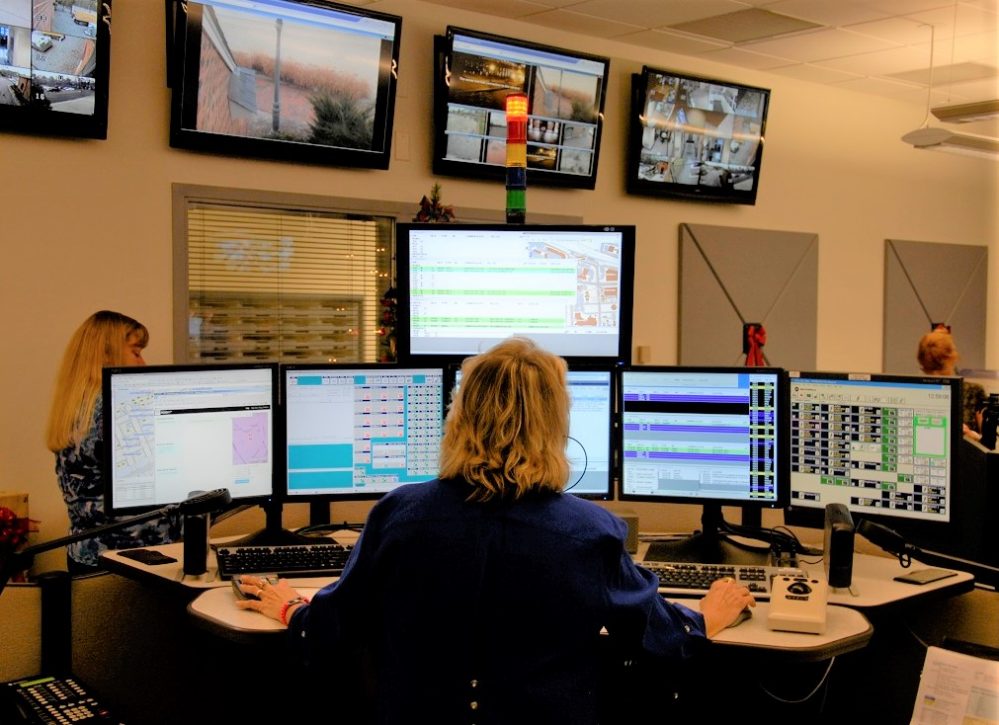
I am not taking away the gravity of the risks and uncertainties when the police and fire fighters physically arrive first to emergency scenes. Many of my articles emphasize the potential danger that may be involved that dispatchers do not experience. Some may even think that dispatchers have it easy because they sit in comfortable chairs in regulated temperatures and all they have to do is answer the phone. Sounds easy, doesn’t it? It isn’t. Not even close.
What I am saying by calling dispatchers the true first responders is that the dispatchers usually are the first to respond to a crisis or emergency situation even before the police or firefighter even knows what’s going on. They are going through this event in real time, quite often with frantic callers they have to calm down so that they can understand them. It is in this article, I want to place them in the spotlight so that you can appreciate the professional behavior they exhibit during very stressful calls.
I was coming up on my one year anniversary of my police career when I was involved in a severe crash where a motorist ran a stop sign with her F-350 pickup and t-boned my vehicle. I was knocked out where paramedics believed I had broken my back. The decision was made and I was air-lifted to a trauma hospital emergency department. I was out of work for about a month and a half. When I came back, they put me on light duty. For one week, they had me in dispatch answering non-emergency calls. I was the only male there and it proved sometimes awkward because they were used to having conversations that were, shall we say, a little spicy. Now, what they talked about was not completely inappropriate for the workplace, but at times it came close. I tried to ignore them, but they didn’t seem to mind I was there.
Yet, when it came to 911 calls coming in, they displayed professionalism and expertise in getting as much information as they could so that they could prepare the one dispatched for what they could expect. It was a sight to see, believe you me. People were screaming on the other end and these dispatchers kept their composure because they knew their responsibility was to find out exactly what was going on. I would dare say most thinking about being a dispatcher would not last a week going through the continual traumatic situations that 911 dispatchers encounter on the phone. I learned so much during that week and I think it would give police and firefighters a deeper appreciation for those dispatchers if they would spend a few shifts with them.
A lot is spoken of the military and first responders having issues, such as PTSD, when they experience a gruesome or grim scene. One of the crashes I worked as a fatality crash investigator that involved a seven month old still sometimes haunts my dreams. I believe my faith has been my strength through these tough experiences. Yet, not much is said about 911 dispatchers having times of depression and anxiety caused by one or two particular calls they had taken in their career.
On the website PSC Online, an article written by Matt Berg entitled “Voices in the Dark: The Voices of Telecommunicators with PTSD”, he quotes Dr. Michelle Lily as saying that the rate of PTSD among dispatchers is between 18-24 percent, as many as one quarter (you may read more concerning this by clicking on the link below).
https://psc.apcointl.org/2020/02/13/voices-in-the-dark-the-voices-of-telecommunicators-with-ptsd
When I returned to the streets, I had a whole new understanding of what they go through. The claims of PTSD and other anxiety issues made sense based on my observations and also what dispatchers had told me, which are listed below:
- The call itself and even the anticipation of these calls were constant stresses they experienced every shift. They had a responsibility of first de-escalating the caller so that they could pull as much information from them as possible that was necessary for the first responder to know before he got to the scene. This proved almost impossible at times. The police officer needed to know if there were weapons involved, where the parties were at the scene, what actually took place, and other hazards they may face so that they would be prepared. This is a massive undertaking on their part. If they get it wrong, things may go south when the police or firefighters arrive.
- Dispatchers, like police and firefighters’ wives, try not to think that the next call the first responder goes to may end their life. The difference is that the dispatcher may feel guilt and depression if that nightmare comes true, and they knew that they were the ones that dispatched them. You can try to explain to them that they were not responsible and that they were only doing their job, but sometimes it would be hard for them to accept this.
- Sometimes they get wrong information, at no fault of their own, but still may get some negative feedback from the officer or fire brigade. There have been some times that I would be dispatched to a “calm” complainant call, where the individual the caller was complaining about returned to the scene and started issues with the complainant and the officer. There are times when callers do not give the right information or leave some information out. Dispatchers may start to second guess their abilities when this happens.
- The last thing (but there are probably more issues), is that so many times they send the first responders to scenes and, unless the officer or firefighter adds notes to the call on their computer, they never know the outcome or disposition of the call. They notice that the one dispatched will finally clear the call, but that is all they know. The thing I discovered is that dispatchers love it when the first responder calls back to let them know what happened and how it was resolved. It gives them some closure, it seems.
I’m sure there are more facets of stress that I have not mentioned, but just to understand what they have to go through on a daily basis should make officers and firefighters more appreciative of their service. So having said that, if you are a first responder, make sure you let your dispatchers know that you appreciate their service for you. If you get to a call, and find out that the information given was not accurate, don’t be so quick to berate them. Let them know what the discrepancy is and let them explain to you what was told to them by the caller.
Sometimes, when I faced a totally different call that what I was dispatched to, the dispatcher would play back the caller’s explanation of what was going on. More times than not, it is an error of the caller, not the dispatcher. Be courteous and watch your tone when you speak with them. I have heard officers get annoyed at dispatchers and you can hear it in the way they speak to them. There is absolutely no reason for this.
If you are a dispatcher and would like to add your input or you have a suggestion on how to enhance this article, please leave a comment at the bottom and let me know. You can also leave examples of some of the more stressful, or even funny calls you took as a dispatcher.
So on behalf of the second, first responders, I salute all those that selflessly took on the position of a 911 dispatcher and I personally appreciate your service to us.
++++++++++++++++++++++++++
DON’T LET YOUR ATTACKER GET TO THIS POINT–PROTECT YOURSELF NOW AND
CLICK BELOW!!


I appreciate this blog because I have been a 911 dispatcher. Our agency was small so there was only one dispatcher at a time, though there were two stations. Many of the issues mentioned here were things we all faced at one time or another and this needed to be told. Thank you.
Not at all. Thank you for your service.